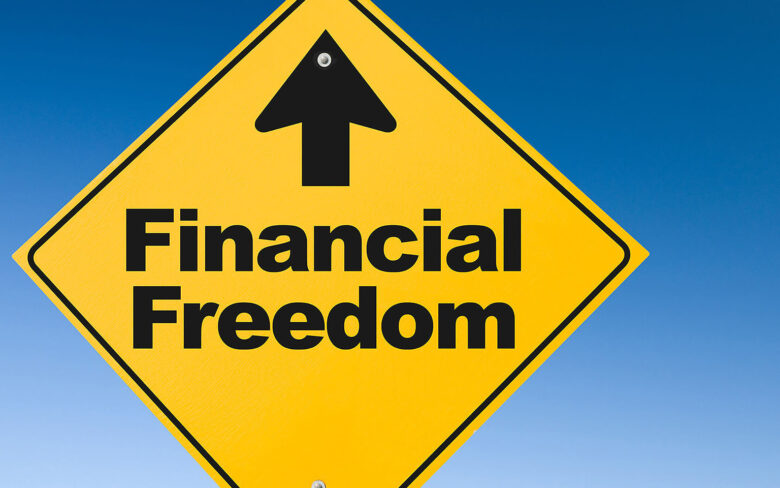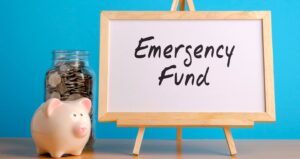The pursuit of financial freedom is a goal cherished by many; however, the way to achieve it can be a daunting task, particularly when you’re burdened with financial burdens. However, by putting in the effort consistently, a well-thought-out financial plan, and a commitment toward your goal, you’ll be able to not only eliminate your debt but also establish a solid financial foundation. This guide will help you take control of your finances and achieve financial freedom. It’s not about quick fixes or magic solutions, but rather about establishing practical plans that can be used in the long term.
Assessing Your Current Financial Situation
The initial step to your budgeting is determining your financial situation. Knowing where you stand will allow you to plot a precise direction towards where you would like to be. Begin by creating an inventory of all your obligations, including outstanding balances, interest rates, and due dates. Be upfront about your earnings streams and your monthly expenses. It can be difficult to face, particularly when you’ve been avoiding considering it, but having an accurate picture of the numbers is essential for establishing a plan. Once you’ve got everything laid out, figure out your total debt as well as the amount of cash to spare every month, if you have any after paying all your expenses, including bills. This information will serve as the stage for the actions that are to follow.
Setting Financial Goals
Once you’ve reviewed the financial state of your affairs, it’s time to set financial goals in concrete terms. Goals help you stay motivated and give you measurable milestones to keep track of your performance. Start by setting both long-term and short-term goals. For instance, a short-term objective could be to settle the balance on a particular credit card, and a longer-term goal could be to eliminate all debt in five years or save money for the down payment on the purchase of a house. Set these goals in clear and measurable phrases. Instead of stating “I want to save money,” think about “I will save $10,000 in the next 12 months.” Consider your goals as a destination that you’ll eventually be able to reach by following a clearly defined path.
Creating a Budget
The importance of having a budget is for financial planning. It serves as a guide to keep you on track in your efforts to reduce debt and reach financial freedom. A zero-based budget, in which every penny is allocated to a particular goal, can assist you in balancing your money and expenses. Start by separating your expenses into the essential categories of utilities, housing, food, transportation, and other non-essential items like leisure and retail. Find areas in which you can cut back on discretionary spending to spend more money on saving or paying off debt. The most important thing is to be consistent. Your budget should function as a monthly plan of action that will allow you to achieve your financial goals without committing to overspending.
Debt Payoff Strategies
In fact, paying off debt is among the most important steps to financial freedom. When you’re stricken with debt, a significant part of your income is devoted towards interest payments and leaves you with little space for savings or investing. Two of the most popular strategies for dealing with debt are the “debt snowball” and the “debt avalanche.” The debt snowball strategy is focused on settling the smallest of debts first, which gives you psychological victories and encourages you to tackle your next one. The other approach, the debt avalanche approach, concentrates on those with the highest interest rates first. This will end up saving you money over the long run. Whatever method you prefer, be sure to remain constant. You may also consider consolidating your debts into a single loan that has a lower interest rate in order to streamline payments and lower interest expenses.
Investing for Financial Freedom
After you’ve made substantial progress in settling your debt, it’s now time to consider the next stage of your financial freedom plan, which is to increase your wealth via investments. Investments allow your money to increase over time and also will help you earn an income stream that will be steady and secure your future. Begin with low-risk and simple investing options like savings accounts with high yields or index funds with low costs. If your employer has the 401(k) or other savings plan for retirement, make sure you take the full benefit of contribution matches to increase your savings over the long term. It’s not just an option for the rich or financially educated. Even modest contributions over time can increase significantly because of the effect of compound interest.
Monitoring and Adjusting Your Plan
Financial planning isn’t something you do once and then forget about. It is a continuous process of review and changes as your circumstances and goals change. Changes in life circumstances, such as fluctuations in your income or medical expenses, as well as family priorities, can require you to revisit your strategy. Set a routine to set aside every month to look over your budget, evaluate the progress you’ve made, and make any needed changes. Reward yourself for small successes throughout the process to keep you on track. If you come across an obstacle, don’t get discouraged. Find areas in which you can make improvements, solicit advice from a reputable financial advisor if you need it, and keep in mind your ultimate goal of financial freedom.
Taking the First Step Toward a Brighter Financial Future
The process of planning your finances to reduce debt and attain financial freedom isn’t an one-time event. It’s a continual commitment. By looking at your financial situation and setting achievable goals by creating an annual budget, paying down debt with a plan, and making smart investments, you can take control over your finances’ future. Remember, each step you take towards financial freedom is a positive step. If you’re making progress by reducing your expenses or paying off your debt, each step you take will bring you closer to your goal of financial freedom.
FAQs
1. How long will it take to reach financial freedom?
The time required to achieve financial freedom largely depends on your starting point, income, debt, and saving habits. If you are committed and persistent, many people can make significant improvements in just five years.
2. Do you think financial freedom means you’re rich?
Not necessarily. Financial freedom means having sufficient funds to cover your living expenses without anxiety, enabling you to live life on your own terms.
3. Where do I begin if I’ve got zero savings and lots of credit?
Start by evaluating your financial situation, creating a modest emergency fund, and adhering to a strict budget. Prioritize paying off the highest-interest debt first.




